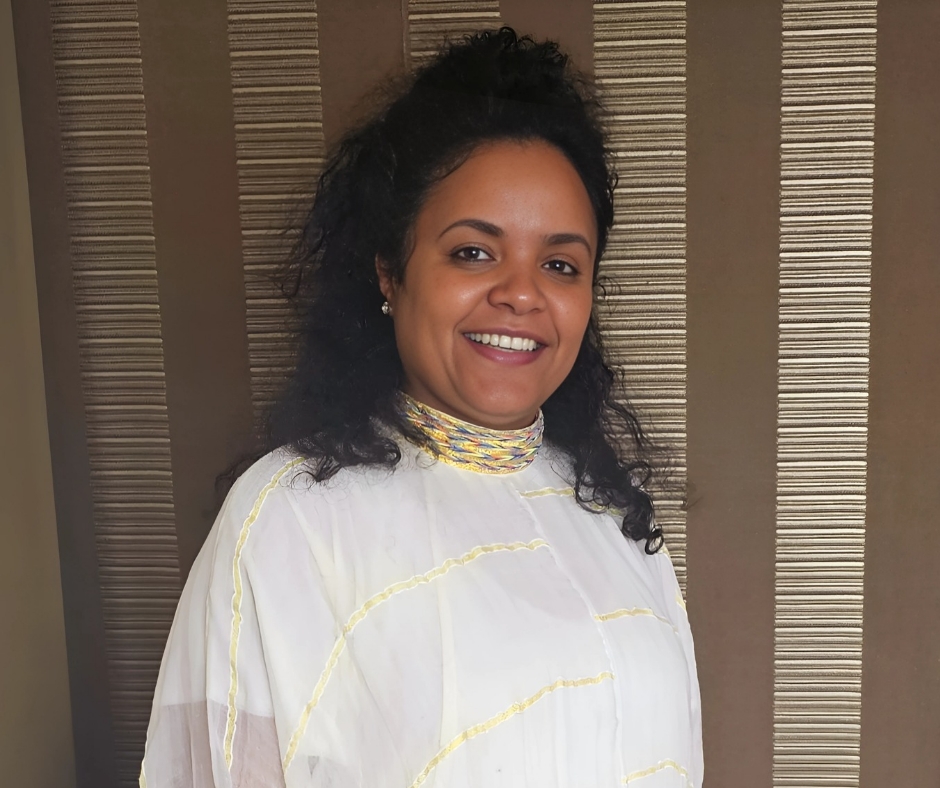by Kidist Teklemariam, PTN Trustee
At the core of the Poverty Truth Network is a simple but powerful value: Humanising Everyone. It’s about leaving our titles, labels, and lanyards at the door and meeting each other as real people. This means stepping away from the roles we’re used to and connecting on a human level.
Humanising Everyone is also about creating spaces where people feel supported and comfortable sharing their experiences. It’s about taking time to listen, reflect, and understand one another. This is the way we work together to bring about real change.
A Leap into the Unknown
When I was asked to join the steering group for Leeds PTC, I wasn’t sure what to expect. As a refugee working to support migrants and refugees in Leeds, I was eager to build networks and advocate for change. But stepping into the room for the first time, I realised this wasn’t going to be a typical experience.
No tables, no notebooks, no pens—just people sitting in a circle, ready to talk. My notebook stayed in my bag. This was about connection, not ticking boxes. It wasn’t about rushing to solutions but about listening—deeply and empathetically.
Lessons in Listening
Initially, I doubted whether I’d fit in. The group was diverse, with people of different ages, backgrounds, and challenges. I expected to present my ideas, link them to solutions, and walk away with a tangible outcome. Instead, I found myself immersed in conversations that focused on building trust and understanding.
Each session was a revelation. We explored different techniques to share and reflect on experiences, and I began to see poverty in a new light. It wasn’t just about being a refugee or facing financial struggles. It was loneliness, lack of information, and countless unseen dimensions. This perspective helped me move beyond my own challenges and embrace the collective journey of finding solutions. Together, we focused on what we could contribute, not on externalising blame.
Humanising Systems: Bridging People and Processes
The project’s ethos became even clearer when business and civic commissioners joined us. As community commissioners, we were trained and equipped to sit confidently with decision-makers. But these leaders didn’t come with titles or authority—they shared personal stories, meeting us as equals. No one expected them to solve our problems. They became part of the journey, joining groups where they felt they could make a difference.
At PTN, I’ve come to understand that our work isn’t just about addressing poverty; it’s about humanising everyone involved. Humanising goes beyond understanding individuals; it requires transforming systems. It means creating structures that are flexible and empowering service providers to adapt their approaches to meet the diverse needs of their communities.
This involves ensuring that residents are not just recipients of decisions but active participants in shaping them. A truly participatory system enables those living against poverty to have a seat at the table, ensuring their voices influence outcomes. It is also crucial to empathise with their circumstances, offering equitable opportunities and ensuring they are not left financially disadvantaged in the process. When systems are humanised, they become not just functional but transformative, fostering collaboration, empathy, and fairness. Every voice matter, every story counts, and every contribution shapes a more inclusive future.
The Power of Mentorship
One of the most transformative aspects of the project was the mentoring experience. I was paired with a city council member, and our relationship became one of mutual learning and friendship. She remains an inspiration to me—her kindness, understanding, and willingness to share her life taught me the value of genuine connection.
Through this process, I learned that solutions aren’t imposed; they emerge through listening and understanding. Even when decisions don’t align with our hopes, being part of the process fosters understanding and prevents grievance. The practice of listening—not to respond but to truly understand—is a lesson I carry with me every day.
A Participatory Approach to Decision-Making
Transforming systems requires embedding participatory practices into every level of decision-making. At PTN, we strive to create spaces where communities, service providers, and policymakers engage as equals. This approach dismantles traditional hierarchies, replacing them with collaboration and mutual respect.
Studies consistently show that participatory governance models improve policy outcomes and strengthen trust between institutions and the public. We see this in action through our work, as those most affected by poverty contribute to decisions that directly impact their lives. The result is not just better outcomes but a sense of ownership and dignity for everyone involved.
Ensuring Equity and Empathy
Addressing poverty isn’t just about providing resources; it’s about recognising and addressing systemic barriers. This means understanding the multifaceted challenges people face and designing systems that respond with fairness and empathy.
Equity demands that we level the playing field—not by imposing top-down solutions but by empowering individuals to shape their futures. Whether it’s ensuring fair compensation, providing opportunities for skills development, or creating accessible pathways to participation, we must prioritise policies and practices that uplift those in need.
Beyond the Project
I thought my involvement with Leeds Poverty Truth would end when the project concluded. I couldn’t have been more wrong. I was invited to join the committee, became a staff member, and eventually had the privilege of becoming a trustee for the Poverty Truth Network.
These experiences have shaped me profoundly. Humanising everyone and every system is not just a principle—it’s a practice that requires intention, empathy, and commitment. Moving forward, I am dedicated to continuing this work, ensuring that every voice is valued, and every story has a place.
A Call to Action
Consider how your own community might thrive if systems were truly inclusive and empathetic. What would it look like if decisions were shaped collaboratively, with the voices of those most affected leading the way? Together, we can reimagine a future where systems work for everyone, and no voice is left unheard.
